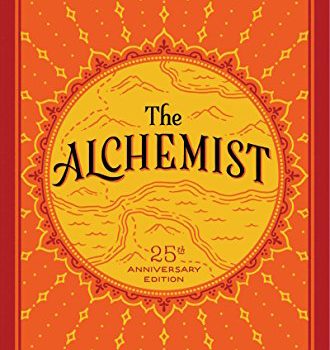

The Alchemist is a well-known novel about a young shepherd who repeatedly confronts fear and comfort to pursue his life’s destiny (of finding a treasure at the Egyptian pyramids). It’s an allegory for daring to achieve what you have always wanted to accomplish.
The book is short so instead of writing a plot summary (a sufficient summary can be found here) I’ll focus on the book’s most meaningful quotes, organized by theme.
Following Your Life’s Purpose
Your Personal Legend is “what you have always wanted to accomplish. Everyone, when they are young, knows what their Personal Legend is. At that point in their lives, everything is clear and everything is possible. They are not afraid to dream, and to yearn for everything they would like to see happen to them in their lives. But, as time passes, a mysterious force begins to convince them that it will be impossible for them to realize their Personal Legend.”
“If he sold just one of his sheep, he’d have enough to get to the other shore of the strait. The idea frightened him.”
“Here I am, between my flock and my treasure, the boy thought. He had to choose between something he had become accustomed to and something he wanted to have.”
“The boy felt jealous of the freedom of the wind, and saw that he could have the same freedom. There was nothing to hold him back except himself.”
“The candy seller had a smile on his face: he was happy, aware of what his life was about, and ready to begin a day’s work. ‘This candy merchant isn’t making candy so that later he can travel or marry a shopkeeper’s daughter. He’s doing it because it’s what he wants to do.’ He realized that he could do the same thing the old man had done—sense whether a person was near to or far from his Personal Legend. Just by looking at them.”
“There was a language in the world that everyone understood, a language the boy had used throughout the time that he was trying to improve things at the shop. It was the language of enthusiasm, of things accomplished with love and purpose, and as part of a search for something believed in and desired.”
“People need not fear the unknown if they are capable of achieving what they need and want. We are afraid of losing what we have, whether it’s our life or our possessions and property. But this fear evaporates when we understand that our life stories and the history of the world were written by the same hand.”
“What went wrong when other alchemists tried to make gold and were unable to do so?” “They were looking only for gold,” his companion answered. “They were seeking the treasure of their Personal Legend, without wanting actually to live out the Personal Legend.”
“Don’t give in to your fears,” said the alchemist, in a strangely gentle voice. “If you do, you won’t be able to talk to your heart.”
“But I have no idea how to turn myself into the wind.”
“If a person is living out his Personal Legend, he knows everything he needs to know. There is only one thing that makes a dream impossible to achieve: the fear of failure.”
“I’m not afraid of failing. It’s just that I don’t know how to turn myself into the wind.”
“Well, you’ll have to learn; your life depends on it.”
“But what if I can’t?”
“Then you’ll die in the midst of trying to realize your Personal Legend. That’s a lot better than dying like millions of other people, who never even knew what their Personal Legends were.”
A Dialogue With the Heart
“My heart is a traitor,” the boy said to the alchemist, when they had paused to rest the horses. “It doesn’t want me to go on. ”
“That makes sense,” the alchemist answered. “Naturally it’s afraid that, in pursuing your dream, you might lose everything you’ve won.”
“Well, then, why should I listen to my heart?”
“Because you will never again be able to keep it quiet.”
“My heart is afraid that it will have to suffer,” the boy told the alchemist one night as they looked up at the moonless sky.
“Tell your heart that the fear of suffering is worse than the suffering itself. And that no heart has ever suffered when it goes in search of its dreams, because every second of the search is a second’s encounter with God and with eternity.”
“When I have been truly searching for my treasure, every day has been luminous, because I’ve known that every hour was a part of the dream that I would find it. When I have been truly searching for my treasure, I’ve discovered things along the way that I never would have seen had I not had the courage to try things that seemed impossible for a shepherd to achieve.”
“Why don’t people’s hearts tell them to continue to follow their dreams?” the boy asked the alchemist.
Like this summary? Want to learn more from books than ever? You'll love my product Shortform.
Shortform has the world’s best guides to 1000+ nonfiction books and articles. Even better, it helps you remember what you read, so you can make your life better. What's special about Shortform:
- The world's highest quality book guides - we discuss the book's main ideas, with expert analysis and commentary expanding will beyond the book
- Interactive exercises that teach you to apply what you've learned
- Discussion communities - get the best advice from other readers
Sound like what you've been looking for? Sign up for a 5-day free trial here.
“Because that’s what makes a heart suffer most, and hearts don’t like to suffer.” From then on, the boy understood his heart. He asked it, please, never to stop speaking to him. He asked that, when he wandered far from his dreams, his heart press him and sound the alarm.
On the Path’s Ups and Downs
“Don’t forget to follow your Personal Legend through to its conclusion.”
“It’s called the principle of favorability. When you play cards the first time, you are almost sure to win. Beginner’s luck.”
“Why is that?”
“Because there is a force that wants you to realize your Personal Legend; it whets your appetite with a taste of success.”
After being robbed early in his journey: “When I had my sheep, I was happy, and I made those around me happy. People saw me coming and welcomed me, he thought. But now I’m sad and alone. I’m going to become bitter and distrustful of people because one person betrayed me. I’m going to hate those who have found their treasure because I never found mine. And I’m going to hold on to what little I have, because I’m too insignificant to conquer the world.”
But soon later: “As he mused about these things, he realized that he had to choose between thinking of himself as the poor victim of a thief and as an adventurer in quest of his treasure.”
After a year with the crystal merchant, when wavering between continuing his quest or returning home: “I can always go back to being a shepherd, the boy thought. I learned how to care for sheep, and I haven’t forgotten how that’s done. But maybe I’ll never have another chance to get to the Pyramids in Egypt.”
On the journey taking longer than expected: “He was actually two hours closer to his treasure . . . the fact that the two hours had stretched into an entire year didn’t matter.”
After traveling through the desert to the oasis: “What the old king had called “beginner’s luck” were no longer functioning. In his pursuit of the dream, he was being constantly subjected to tests of his persistence and courage. So he could not be hasty, nor impatient.”
“Before a dream is realized, the Soul of the World tests everything that was learned along the way. It does this not because it is evil, but so that we can, in addition to realizing our dreams, master the lessons we’ve learned as we’ve moved toward that dream. That’s the point at which most people give up. It’s the point at which, as we say in the language of the desert, one ‘dies of thirst just when the palm trees have appeared on the horizon.’”
On People Who Give Up Their Ambition
The world’s greatest lie is “that at a certain point in our lives, we lose control of what’s happening to us, and our lives become controlled by fate.”
“The boy could see in his father’s gaze a desire to be able, himself, to travel the world—a desire that was still alive, despite his father’s having had to bury it, over dozens of years, under the burden of struggling for water to drink, food to eat, and the same place to sleep every night of his life.”
On a baker: “When he was a child, that man wanted to travel, too. But he decided first to buy his bakery and put some money aside. When he’s an old man, he’s going to spend a month in Africa. He never realized that people are capable, at any time in their lives, of doing what they dream of.”
- Why do people become bakers? “Parents would rather see their children marry bakers than shepherds. In the long run, what people think about shepherds and bakers becomes more important for them than their own Personal Legends.””
“The crystal merchant had no choice. He had lived thirty years of his life buying and selling crystal pieces, and now it was too late to do anything else.”
“Well, why don’t you go to Mecca now?” asked the boy.
“Because it’s the thought of Mecca that keeps me alive. That’s what helps me face these days that are all the same, these mute crystals on the shelves, and lunch and dinner at that same horrible café. I’m afraid that if my dream is realized, I’ll have no reason to go on living…I’ve already imagined a thousand times crossing the desert…But I’m afraid that it would all be a disappointment, so I prefer just to dream about it.”
After Santiago helps a crystal merchant increase sales: “Now that I have seen them, and now that I see how immense my possibilities are, I’m going to feel worse than I did before you arrived. Because I know the things I should be able to accomplish, and I don’t want to do so.”
Santiago: “What if I decide to stay?”
The Alchemist: “Many times you’ll walk the sands of the desert, thinking that maybe you could have left…because what kept you at the oasis was your own fear that you might never come back. At that point, the omens will tell you that your treasure is buried forever. You’ll spend the rest of your days knowing that you didn’t pursue your Personal Legend, and that now it’s too late.”
On sheep (possibly a metaphor for people content with their day to day): “The only things that concerned the sheep were food and water…their days were all the same, with the seemingly endless hours between sunrise and dusk.”
“There was also the merchant’s daughter…he was sure that it made no difference to her on which day he appeared: for her, every day was the same, and when each day is the same as the next, it’s because people fail to recognize the good things that happen in their lives every day that the sun rises.”
On Living in the Present
“When I’m eating, that’s all I think about. If I’m on the march, I just concentrate on marching. If I have to fight, it will be just as good a day to die as any other. “Because I don’t live in either my past or my future. I’m interested only in the present. If you can concentrate always on the present, you’ll be a happy man.”
“Tribesmen were also wary of consulting [the seers], because it would be impossible to be effective in battle if one knew that he was fated to die. The tribesmen preferred the taste of battle, and the thrill of not knowing what the outcome would be; the future was already written by Allah, and what he had written was always for the good of man.”
Like this summary? Want to learn more from books than ever? You'll love my product Shortform.
Shortform has the world’s best guides to 1000+ nonfiction books and articles. Even better, it helps you remember what you read, so you can make your life better. What's special about Shortform:
- The world's highest quality book guides - we discuss the book's main ideas, with expert analysis and commentary expanding will beyond the book
- Interactive exercises that teach you to apply what you've learned
- Discussion communities - get the best advice from other readers
Sound like what you've been looking for? Sign up for a 5-day free trial here.
“If good things are coming, they will be a pleasant surprise,” said the seer. “If bad things are, and you know in advance, you will suffer greatly before they even occur.”
“Your eyes show the strength of your soul.”
Miscellaneous Quotes
“That was what made traveling appeal to him—he always made new friends, and he didn’t need to spend all of his time with them. When someone sees the same people every day, as had happened with him at the seminary, they wind up becoming a part of that person’s life. And then they want the person to change. If someone isn’t what others want them to be, the others become angry. Everyone seems to have a clear idea of how other people should lead their lives, but none about his or her own.”
After Santiago promises 1/10th of his treasure to the old king: “If you start out by promising what you don’t even have yet, you’ll lose your desire to work toward getting it.”
“The secret of happiness is to see all the marvels of the world, and never to forget the drops of oil on the spoon.” – You must balance your duties with seeking what makes you happy, not concentrating only on one.
“Isn’t wine prohibited here?” the boy asked. “It’s not what enters men’s mouths that’s evil,” said the alchemist. “It’s what comes out of their mouths that is.”



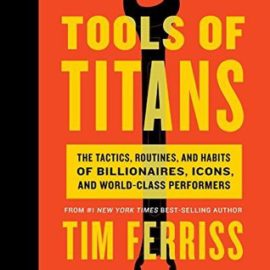
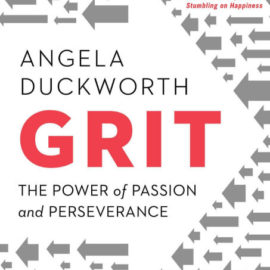
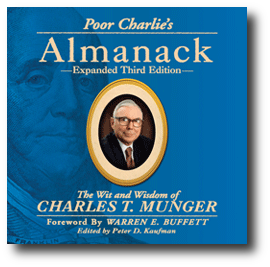
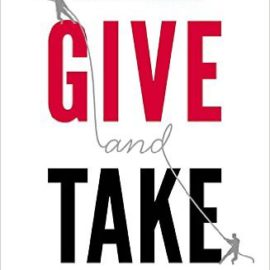
Thank You so Very Much… I really Enjoy reading the Summaries from these Books… Looking forward to seeing more….
Thanks Again,
God Bless You for the Beauty of Your Heart & Mind to Inspire People to continue to Read & Purchase these Books…